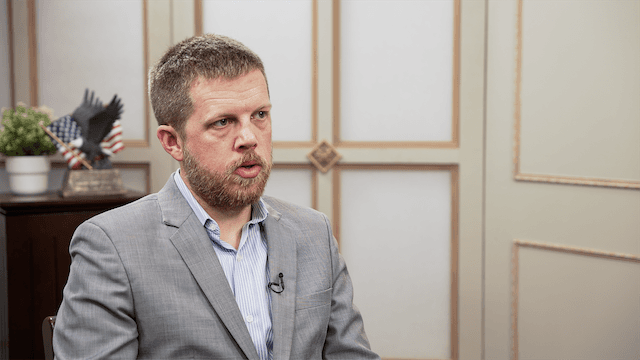Connor Boyack is the founder of the Libertas Institute and author of the Tuttle Twins children’s books, which have sold 4 million copies. He recently released “America’s History,” a new Tuttle Twins story-based textbook to counter the “superficial history” taught by today’s social studies textbooks.
Boyack’s goal is to empower parents to equip their children with intellectual tools to evaluate ideas: to recognize ideas that are based on truth, on goodness, and that will help society flourish.






